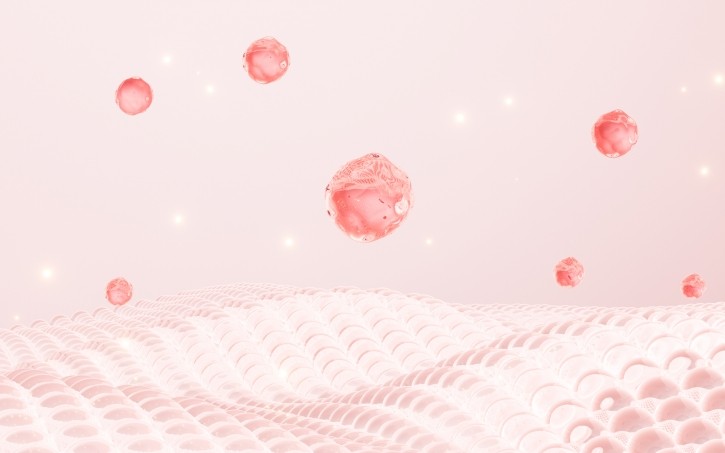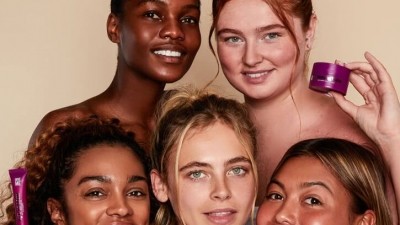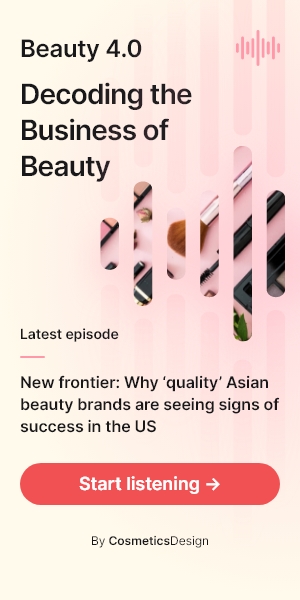“Biology can do what chemistry is not able to”: biotechnology & ‘natural’ beauty ingredients

Skin care has seen a lot of advancements in this arena and the fragrance category is now increasingly embracing biotech due to changes to international ingredient regulation, as well as sustainability factors.
One example of a fragrance house embracing biotech is French company Robertet, which has recently joined forces with Interstellar Lab to introduce a BioPod: AI-controlled bio farm developed that accelerates plant growth and optimises plant molecular composition, while minimising environmental impact of soil-less cultivation.
While the beauty and personal care ingredients company Sederma (part of Croda), which has been working on plant biotechnology for over 18 years, said the progress made in the field recently offers “unlimited potential to produce molecules of interest”. The company now offers around 15 actives made using biotechnology and said that the process results in “preservative-free, readily biodegradable” ingredients.
As hair is the category in the spotlight for 2024, there is an increased amount of innovation in this category. French biotech company Naolys has recently launched a new anti-ageing active especially dedicated to the extension of the hair growth cycle, HairRevive [MM+Zn], which it had described as “a plant shell made of musk mallow cells and mineral zinc” that will “help to maintain growth, length, and pigmentation of hair, all the hair growth cycle.”
Biomimetic beauty ingredients
Brands using biomimetic ingredients are a hot topic for beauty businesses right now and many of the major player companies are investing in this area. Unilever has just acquired biomimetic hair brand K18 and last year, L'Oréal, Unilever and Kao all invested in a venture led by biotechnology company Geno, to create more sustainable alternatives for key ingredients in beauty products.
L'Oréal’s Green Sciences division even stated that this will “replace traditional ingredients with bio-based alternatives.”
Biomimicry itself is a type of biotechnology that involves creating ingredients and products that emulate natural biological processes or structures. As an example, a moisturiser that mimics the hydration abilities of a certain plant or the regenerative qualities of natural enzymes.
One of the main reasons many cosmetics companies are embracing this biotechnology boom is due to issues sustainability and availability issues for natural ingredients and the resulting biodiversity loss, both on land and in the ocean.
Post the ‘naturals’ boom, plant-based and vegan beauty are now an expectation for many consumers, who are still seeking out ‘cleaner’ formulations when choosing a new beauty product, but also want a scientific assurance that the ingredient is going to be efficacious. The movement goes well beyond brand positioning and marketing: it’s a complete transformation in how products are being formulated from the get-go.
Right now, there appear to be two camps: the companies still working with natural plant-based ingredients and the companies opting for lab-based ingredients via biotechnology.
Never-before-seen ingredients and hyper-personalised formulations
“The promise of biotechnology is vast with breakthroughs that allow us to responsibly design precise nutrient rich formulations,” said the head of science & product innovation at skin care brand Romilly Wilde, Mateja Weber.
Weber explained that natural ingredients developed through traditional farming are developed with the use of chemistry as the foundational technology, whereas ingredients developed through biotechnology are developed through the use of biology as the foundational technology.
Biotechnology offers several advantages over traditional farming methods when it comes to sourcing natural ingredients.
"There are a few different ways to harness biotechnology," explained Weber. "You can use fermentation, which uses microorganisms to transform a substance. You can use plant cell cultures or enzymes in a process known as ‘enzymatic synthesis’."
According to Weber, the power of biotechnology is that it:
- Promises never-before-seen ingredients and hyper-personalised formulations.
- Allows for a more sustainable supply chain that doesn’t rely on petrochemicals and depleting natural resources.
- Helps mitigate unethical sourcing of ingredients.
- Creates high-purity ingredients that are more efficient and effective.
- Allows for safer ingredients and safer formulation.
- Allows for consistency in production from batch to batch of ingredient and finished formulations.
“Biology can do what chemistry is not able to,” she said. “It’s an incredibly sophisticated technology that has nanoscale precision.”
Weber also highlighted the potentially better safety and purity of these ingredients: “Biotech actives are developed with precision in controlled laboratory environments, reducing the risk of contamination and impurities that can sometimes be present in natural ingredients. This makes them a safer and purer option for skincare products,” she said.
And they are of course a more sustainable option as they can be produced with a smaller environmental footprint compared to traditional methods of extraction “because they often require fewer resources and have a reduced impact on ecosystems,” she said.
So, in the light of this, are there any potential disadvantages? Weber said that as biotechnology is a rapidly evolving field that “involves continuous advancements and breakthroughs,” the speed of these technological advancements and processes can potentially “cause challenges for existing regulatory frameworks to fully comprehend and update/adapt their guidelines, leading to gaps in oversight.”
What’s next for biotechnology-based beauty?
To conclude, Weber shared her insights on the potential future of biomimetics in beauty:
1. The integration of biotechnology with artificial intelligence (AI) into smart skincare devices for more accurate skin analysis / enhanced data analysis, and personalised skincare and improved delivery of active ingredients.
2. Continued emphasis on biologically derived ingredients, such as botanical extracts produced through biotechnology, to create more sustainable and ethically sourced components for skincare and cosmetic products.
3. Advancements in biotechnology may enable personalised and customised skincare solutions based on an individual's genetic makeup, skin microbiome, and specific needs. This could involve the development of tailored formulations for improved efficacy.
4. Packaging: Biotechnological advancements can contribute to the development of biodegradable and sustainable packaging materials for beauty products.
5. Ingredient and formulation testing methods: Advancements in biotechnology for testing formula efficacy and claim substantiation testing using lab-grown human tissues and cells. In addition, this technology is used to replace traditional animal testing in the development and testing of beauty products.











![Chinese study highlights mental health challenges in atopic dermatitis, emphasising holistic patient care. [Getty Images]](jpg/chinese-research-linking-atopic-dermatitis-to-mental-health-underscores-need-for-holistic-care-2.jpg)








